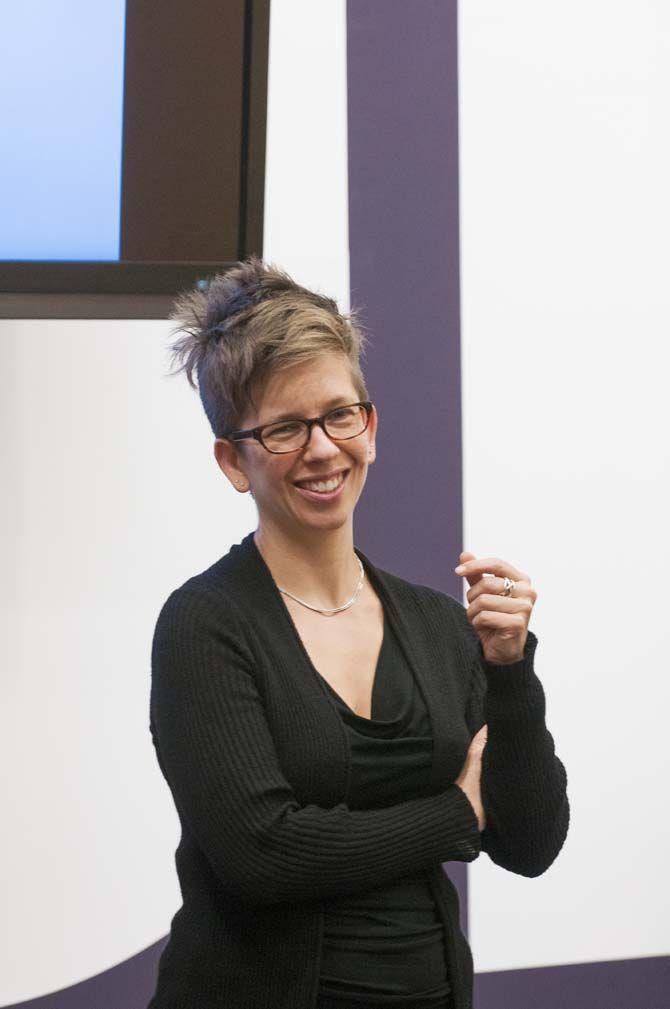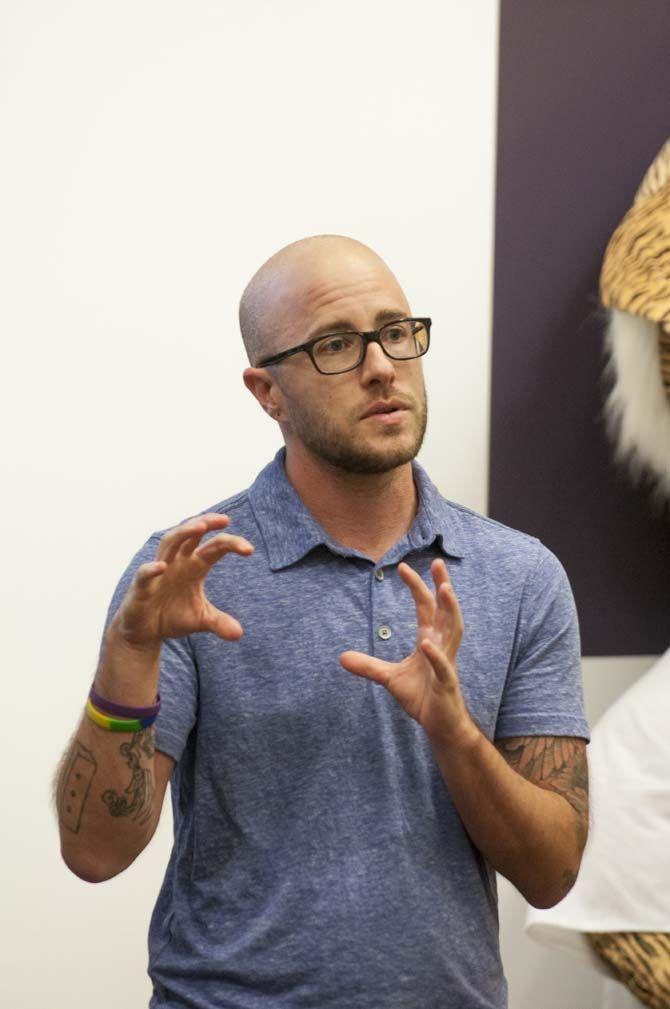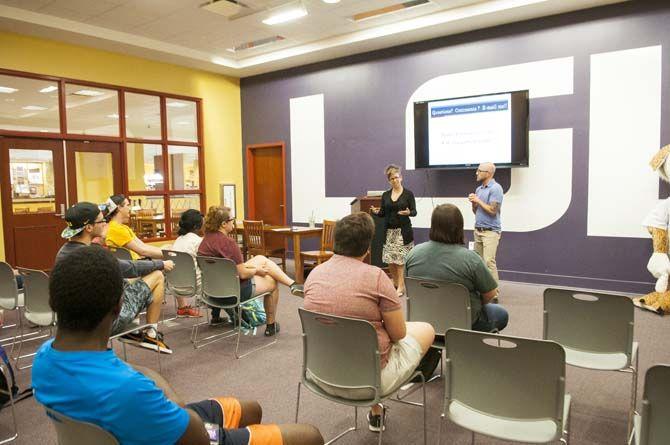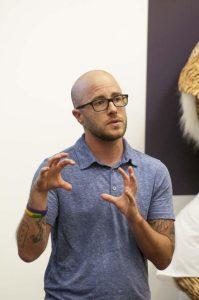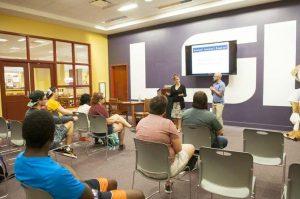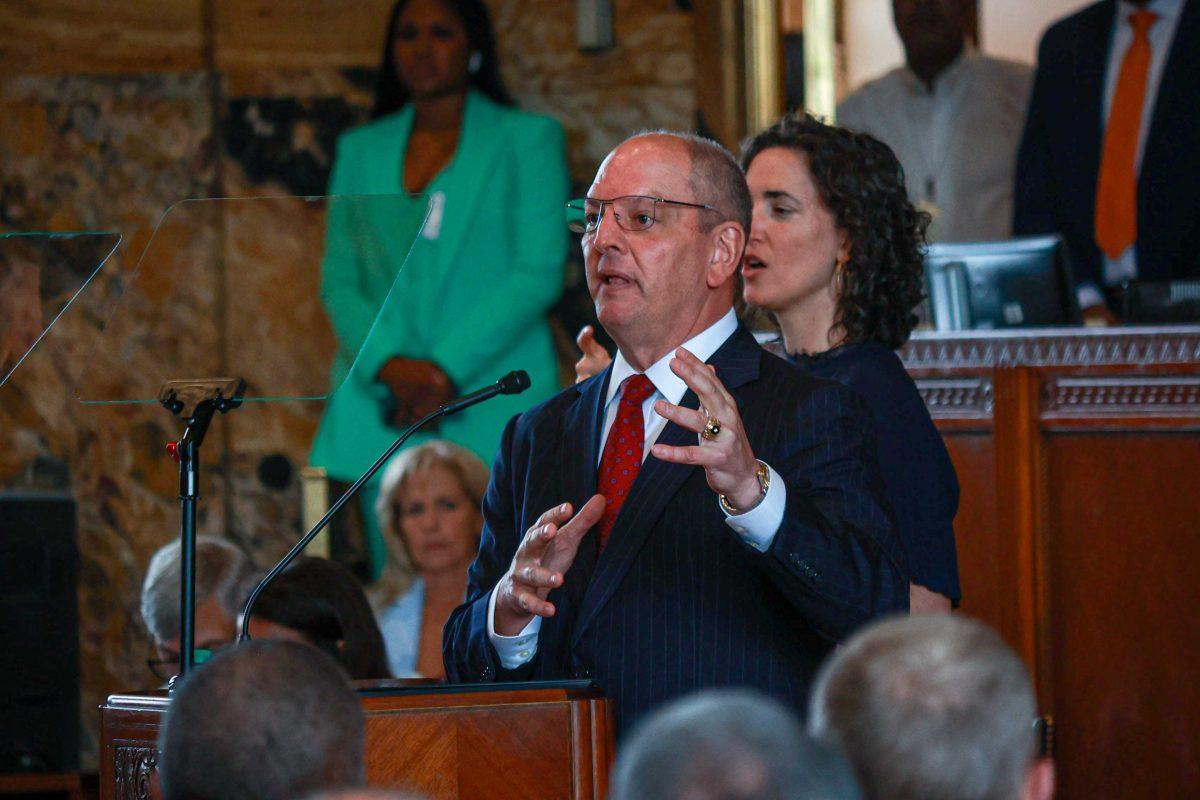A workshop hosted by Spectrum on Wednesday evening featured a presentation by LSU women’s and gender studies professor Catherine Jacquet and adjunct instructor Liam Lair on ways students and faculty can work in unison with transgender and non-gender conforming students.
Lair said he lived as a cisgendered woman until the age of 28 — someone whose personal gender perception aligns with their perceived sex. He now identifies as transmasculine, and works with Jacquet to raise awareness and promote affirmation of trans and other non-gender conforming individuals.
“When we’re giving this presentation to other faculty or administrators, we’re trying to give them a sense of where our students are coming from,” Jacquet said.
Jacquet and Lair used a visual aid in their presentation called the “Gender Unicorn” — a model with sliding scales ranging from sexual attraction to gender expression.
“We usually think about gender, about being a man or woman, and that that is synonymous with genitals, with bodies, etcetera,” Lair said. “But it’s useful to be able to separate those, to talk about sex as far as chromosomes, hormones, genitals, etcetera — and then gender as something that you grow into, something that you learn. As RuPaul said, we’re born naked and the rest is drag.”
Jacquet and Lair work to spread information such as basic definitions of everyday phrases used discussing these topics. The pair also educate people on the realities of discrimination against trans and non-gender conforming people. In K-12 schools, 26 percent of such students are physically attacked because of their gender expression, and more than 87 percent are verbally harassed, Jacquet and Lair said.
A lack of available resources and assistance compound these issues for young trans and non-gender conforming people, and students play a key role in making LSU a more supportive environment, Lair said.
“We talk about being inclusive, but I think being affirming is really important because I don’t ever want to be [just] tolerated,” Lair said. “I want to affirm people and celebrate what they are.”
Another issue Jacquet and Lair discussed is the unfair handling of trans people’s choices and transitions, with treatments such as hormonal therapy and plastic surgery requiring more evaluation and psychological tests than they would for non-trans patients.
Acquiring hormone therapy as a non-trans person is a far simpler affair than for a trans person, Lair said, and the chest masculinization operations he underwent in Chicago during his transition would have been much more difficult to receive in many parts of the United States.
“Why are some people’s choices and transitions seen as a normal part of life and others as a psychological condition?” Jacquet said. “If I wanted breast augmentations … I don’t have to go to a psychologist, I can walk into a plastic surgeon’s office and it’s a done deal. No questions of my mental status.”
While Lair said in his presentation that some trans people are simply “Born This Way,” it is not true in all circumstances, and the members of the trans community that change later in life are no less legitimate.
“I don’t feel like I was born a man. I didn’t know I was trans or that I wanted to be trans until I was 28.” Lair said. “I really did enjoy identifying as a woman.”
Spectrum hosts presentation on trans information from LSU faculty couple
By Trent Parker
October 14, 2015
PhD History of WGS Assistant Instructor, Catherine Jacquet presents at a Spectrum meeting on the issue of handling trans topics in the school and public systems on Wednesday, October 14, 2015, at LSU.
More to Discover


